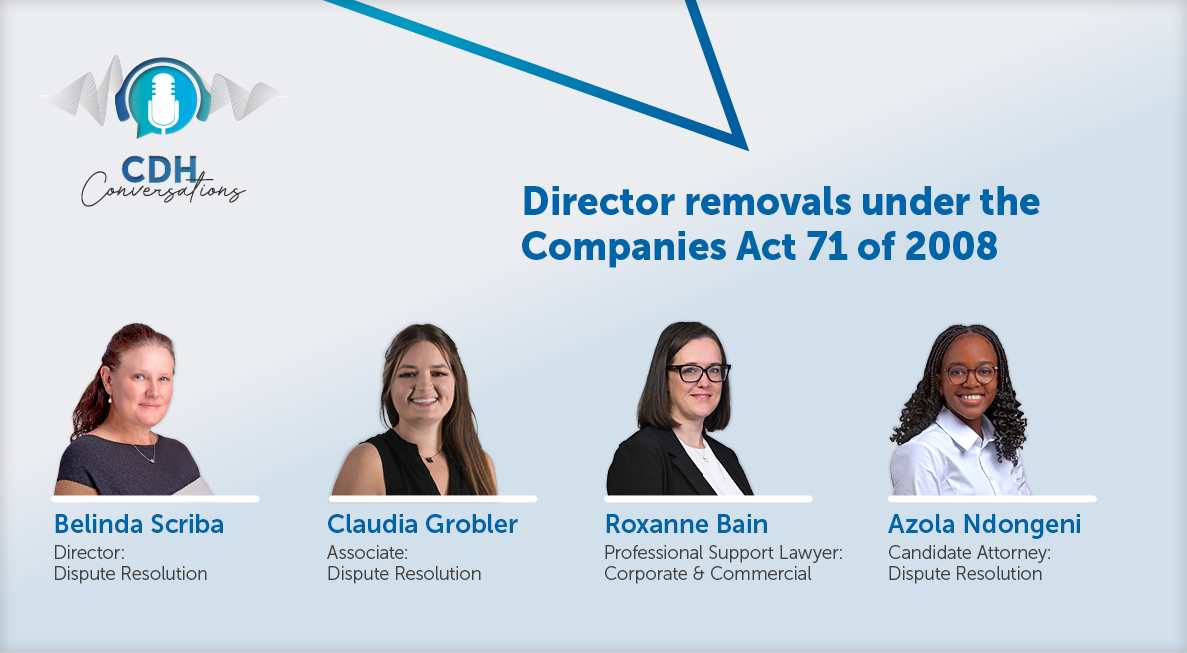Labour Court stops SATAWU's secondary strike action
Johan Botes, Director in the Employment practice at Cliffe Dekker Hofmeyr says that in a detailed and well-reasoned judgment, Judge Anton Steenkamp held that Transnet satisfied the requirements for an interim interdict to be issued to prohibit the state owned entity’s employees from embarking on strike action which was due to commence on 06h00 on 16 October 2012. SATAU may oppose the interim order. Should they fail to do so, the Labour Court may issue a final interdict on 26 October 2012 to prohibit the secondary strike.
“The Labour Relations Act provides for employees engaged with a different employer to support a strike underway involving a separate employer. In this case, SATAWU gave notice to Transnet that it intended taking its members out on strike where these members are employed at various Transnet subsidiaries (including the National Ports Authority, Port Terminals, Rail Engineering, Freight Rail, Transnet Group and Pipelines). This would have seen the Transnet SATAWU members supporting their colleagues in the Road Freight Industry currently on strike for inter alia higher wages (the primary strike),” explains Botes.
Botes notes that secondary strikes are used to place pressure on employers engaged in the primary strike to accede to the demands of the workers participating in the primary strike. The secondary strike draws employers and employees into the industrial action notwithstanding the fact that there is no dispute between these employees or their employers.
“While this may seem unfair to the secondary employers, part of the thinking behind secondary strikes is that pressure may be brought to bear by the secondary employers on the primary employers to finalise the dispute that led to the primary strike. The LRA limits the right to secondary strikes by providing that no person may participate in a secondary strike unless (1) the primary strike is protected under the LRA, (2) the secondary employer received at least seven days’ written notice of the intention to strike and (3) the nature and extent of the secondary strike is reasonable in relation to the impact it may have on the business of the primary employer.”
Botes explains that the Commission for Conciliation, Mediation and Arbitration (CCMA) may be called to deliver a report to the Labour Court to determine the reasonableness of the secondary strike. Judge Steenkamp noted that this report, although requested by Transnet, was not yet available. He noted that this made it difficult to determine the proportionality of the secondary strike, but welcomed the fact that the CCMA indicated that this would be made available within seven days.
Botes says the Judge agreed with Transnet that, even without the report, the secondary strike was likely to have a significant impact on Transnet. He noted that Transnet and the RFI are in competition with one another, making it unlikely that a strike by Transnet employees would be detrimental to employers in the RFI. He further lamented the violent conduct of the striking workers currently engaged in the RFI strike. This factor was considered in determining hat Transnet may indeed suffer irreparable harm should the secondary strike take place. The Judge likened the conduct of the union in calling on its members to act peacefully to the falcons who cannot hear the falconer in Yeats’ poem The Second Coming. He noted the memorable line in the poem “The best lack all conviction, while the worst are full of passionate intensity.”
“The judgment is a welcome reprieve to employers who are subject to violent strike action and intense inter-union rivalry. The judgment follows on the heels of the Constitutional Court’s confirmation that trade unions could indeed be held liable for damage caused by its protesting members. The judgment shows that employers should keep the faith and exert their rights in the face of this wave or unlawful conduct carried out by thugs under the banner of advancing workers’ rights,” Botes adds.
The information and material published on this website is provided for general purposes only and does not constitute legal advice. We make every effort to ensure that the content is updated regularly and to offer the most current and accurate information. Please consult one of our lawyers on any specific legal problem or matter. We accept no responsibility for any loss or damage, whether direct or consequential, which may arise from reliance on the information contained in these pages. Please refer to our full terms and conditions. Copyright © 2025 Cliffe Dekker Hofmeyr. All rights reserved. For permission to reproduce an article or publication, please contact us cliffedekkerhofmeyr@cdhlegal.com.
Subscribe
We support our clients’ strategic and operational needs by offering innovative, integrated and high quality thought leadership. To stay up to date on the latest legal developments that may potentially impact your business, subscribe to our alerts, seminar and webinar invitations.
Subscribe




